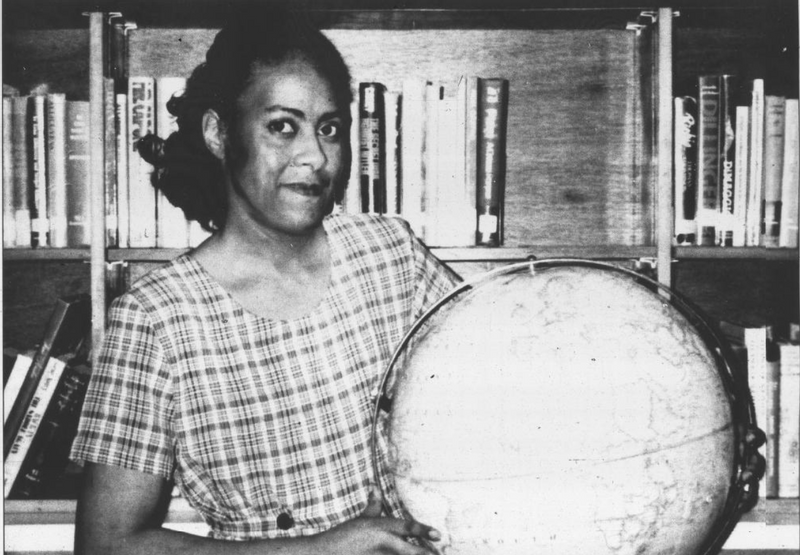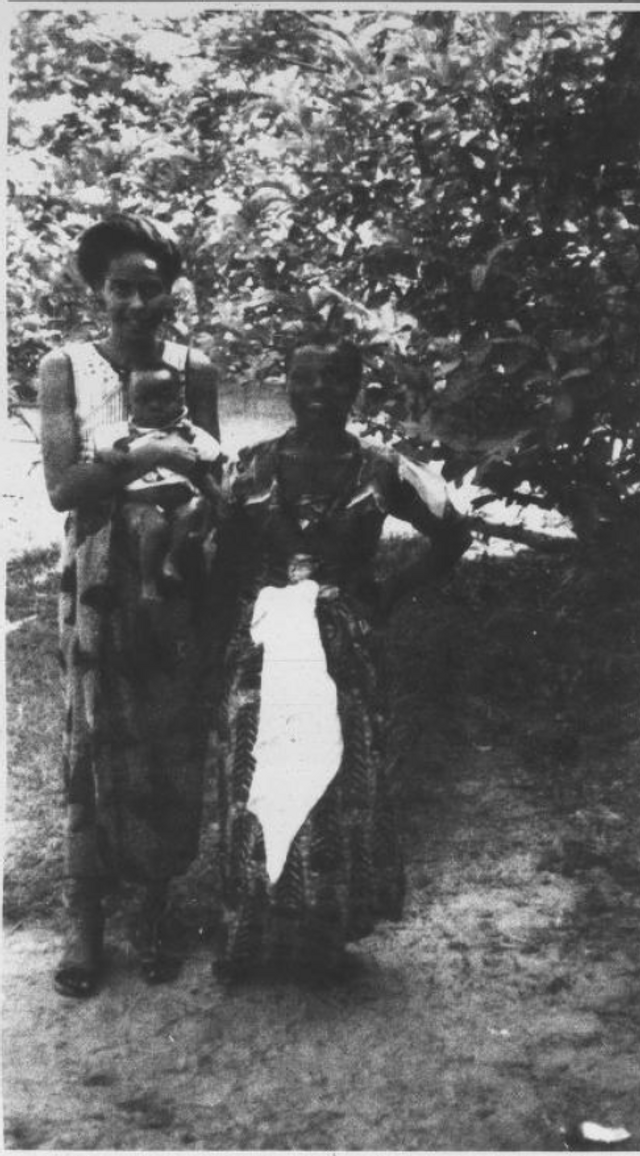Special from the April 29, 1998 edition of the Iredell Citizen Newspaper
Experience is the Best Teacher

THE WORLD IN HER HANDS --
Jackie Scott, an English teacher at West Iredell High School, spent two years serving with the Peace Corps in Africa where she taught high school English in a secondary boarding school. Her memories and experiences have left a vivid impression on the young teacher. (Photo by Nicole Snook/Iredell Citizen)
By Nicole Snook / Iredell Citizen
She thought she might like to walk like an Egyptian. Instead she was offered monkey and termites to eat.
While a student at Queens College, Jackie Scott volunteered to go to Egypt with the Peace Corps. As time progressed, she was asked to go to Africa, where there was a greater need for teachers. She taught high school English in a secondary boarding school.
In the village where she was assigned, electricity was something they had only once a year - at Christmas time. “They had a generator, but not enough oil to use it all year long.” Without electricity, the rest of the year open fires were used for cooking and light.
That wasn’t the hardest adjustment for Scott. To get water you either went to the river or collected rain water.
Bath time was a large bucket. If you wanted to shower - you danced in the rain. Scott had two buckets to hold water.
She would alternate the buckets, collecting rain water in one, and use the other for cooking and drinking water.
The river was about a mile away from the village - quite a walk with a bucket full of water.
It was unheard of for men and women to go to the river together. Women were submissive.
They did what most women do - wash clothes and cook - but they did not have freedom. A bride was bought from her family with money or through a trade.
Whatever the woman had was property of the man. If there was a divorce, the man would get the children.
The village people had their own justice system. If someone yelled for help, everyone would come running. Villagers would watch and participate in the punishment. On most occasions the punishment was a brutal beating.
The diet was not as we know it here. Their main course might have been bidia, manioc plant, and dried fish. The menu did not end there. They ate beans and rice. For meat they ate chicken, goat, rabbit, dried fish, duck, guinea pig, mouse, rat and caterpillar.
“A delicacy was monkey and termite,” Scott remembers. She describes the food as having an indescribable taste. It took her about two weeks to adjust to the food.
A few of the foods are similar to what we know. "Bidia is like a hard grit," explains Scott. They would cook the mix over hot coals, holding the pot with their bare feet and stir the stiff mixture using both hands. It would be eaten with manioc plant or the juice of the plant to give it flavor. Gravy from meat would also be used to give additional flavor.
Dried fish was prepared by laying the fish out in the sun and letting it dry. Scott describes it as having a "very fishy taste." Not all the foods were appealing to her taste buds. “I could not bring myself to eat monkey and caterpillar," says Scott.

Food was prepared over open fire. Sometimes they would fry their food in a pan and at other times they would lay it on hot coals. The palm oil used in cooking made the food very greasy, Scott adds.
Food was bargained for at an open market. Trading was how they got what they needed. Scott describes it as “an extended family." Most foods were seasonal.
Scott said there are only two seasons in the country - dry and rainy. The dry season had no humidity. The heat was dry. which made it pleasant according to Scott. The rainy season was hot when it was about to rain, but pleasant.
"A part of my life will always be with the people I had the privilege to meet." I went to a different land, she said, not sure of anything and came home with more than I could image.
DISCOVER Statesville, North Carolina
Powered by Spokeology, 307 E. Front Street
Statesville, NC 28677
704-380-4015
www.statesvillenc.com










%20(5)%20(1).jpg)







